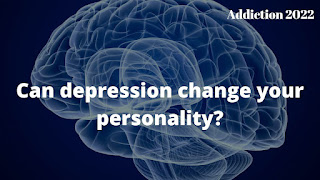How does substance abuse affect the cardiovascular system?
Most illicit drugs can cause cardiac problems, ranging
from heart
palpitations to heart attacks. Injecting illegal narcotics can also cause
cardiovascular issues including blocked veins and bacterial infections in the
blood arteries and heart valves. Cocaine, heroin, and other forms of
amphetamine can influence the central nervous system and can change a user's
consciousness. The following are some of the adverse effects and hazards
connected with the use of these medicines, in addition to addiction:
·
Temperature,
heart rate, and blood pressure fluctuations
·
Headaches,
nausea, and stomach discomfort
·
Poor
judgement and a higher chance of contracting some sexually transmitted
illnesses
·
The
presence of contaminants (such as talc, toxins, herbicides,
or other particles) that might induce a hazardous response
·
Heart
attacks, migraines, and respiratory arrest are all possible outcomes.
Cocaine powder is breathed through the nose (snorted)
and absorbed through nasal mucosa, or it is dissolved in water and injected
directly into the circulation. Crack is a type of cocaine that has been refined
into a crystalline rock that may be smoked. Even "recreative" cocaine
users may have higher blood pressure, stiffer arteries, and thicker heart
muscle walls than non-users, all of which can lead to a heart attack.
Stimulants and opioid medicines are the most prevalent substances linked to
cardiovascular disease. By disrupting the proportion of specific neurotransmitters
called catecholamines
in the body and brain, they may raise the risk of vascular or cardiac diseases.
Depending on the dosage and the presence of underlying
cardiovascular illness, sympathetic activation can cause various degrees of
tachycardia, vasoconstriction, and unexpected blood pressure effects. Acute
cardiac depression (due to ischaemia or a direct toxic effect of the drug) can
develop as a result of a relative catecholamine depletion condition,
paradoxical central nervous system suppression (amphetamine), or acute
myocardial depression (due to ischaemia or a direct toxic action of the
medication). Myocardial ischaemia and infarction may be associated with
increases in oxygen demand, coronary artery spasm, platelet aggregation, and
thrombus formation due to elevated catecholamine levels. Endothelial damage,
coronary artery dissection, and atherosclerosis can be caused by repeated bouts
of coronary artery spasm and hypertension
paroxysms. Aortic dissection or valve damage can occur as a result of paroxysmal
elevations in blood pressure, raising the risk of endocarditis.

.png)
.png)

Comments
Post a Comment